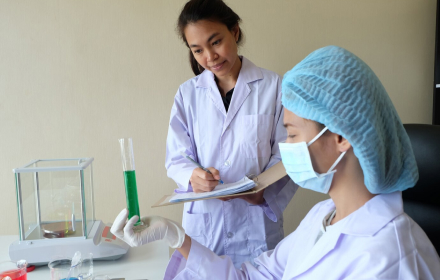This is designed to introduce the Special Access Schemes/Named Patient Programs (NPP). From a neutral perspective, all information below is carefully sourced from authoritative government documents and respected medical knowledge bases such as via globalforum. diaglobal, Alpha Direct specializes in providing comprehensive guidance and insight into NPP policies for physicians.
What are Special Access Schemes/Named Patient Programs?

Special access schemes, also known as compassionate use or named patient programs, provide doctors or patients with access to next-generation medicines and treatment options for serious or life-threatening conditions. These programs provide physicians or patients with early access to innovative medicines in an ethical and regulated manner.

Generally, physicians, on behalf of patients who have exhausted all other treatment options and who may benefit from the use of experimental medicine, can request access to these medicines. This process usually requires the approval of the pharmaceutical company and, in some cases, of the regulatory authorities on an individual basis.

In other words, NPP means that the medicine, often as a last resort when standard treatments have failed and there is only one innovative option, is prescribed to a specific person by name. NPPs provide easier and more rapid access to potentially life-saving treatments and have the potential to save thousands of lives each year.
Special Access Schemes/Named Patient Programs in Southeastern Asia
General Requirements
In general, according to the FDA in the US, Special Access Schemes/Named Patient Programs typically involve obtaining regulatory approval for the drug’s investigational or pending status, a prescription from a licensed healthcare professional for a specific patient, patient consent, the manufacturer agreeing to supply the drug, and complying with relevant regulatory guidelines.
Implementation in Southeastern Asia
This is a well-established example of a special access program, unlike the situation in developing countries such as Malaysia, Indonesia, and Thailand. The legality and implementation of Special Access Schemes/Named Patient Programs (NPPs) vary across Southeast Asia, depending on each country’s regulations. Prior to using Special Access Schemes/Named Patient Programmes, it is recommended that both professionals and patients comply with applicable laws.
To enable you to review your country’s guidelines promptly, we provide updated information on Special Access Schemes/Named Patient Programs specific to your country.
Country Specific Regulations That Allow Importing Innovative Medicines
Summary Chart for Special Access Schemes/Named Patient Programs in Southeastern Asia

Malaysia
National Agency of Drug and Food Control (NADFC/BPOM)
Ministry of Health of the Republic of Indonesia (MoH)
NADFC: Within 10 working days for innovative drugs
MoH: Varies based on urgency (Category A or B) for innovative drugs

Indonesia
Pharmaceutical Services Programme
Named Patient Program
Approximately two to four weeks for review and approval

Thailand
Thailand Food and Drug Administration
Patient Use Program
No specified timeline
Tips: Should you find any discrepancies between the information presented here and the guidelines in your country, please don’t hesitate to get in touch with us directly.
Disclaimer: Alpha Direct’s service cannot replace the relationship between doctors and patients, nor can it be used as a medical proposal. Alpha Direct provides a safe and reliable approach to obtaining approval for drugs from other countries, providing new drug options for patients and doctors. We only provide this service after patients and doctors make professional decisions.





